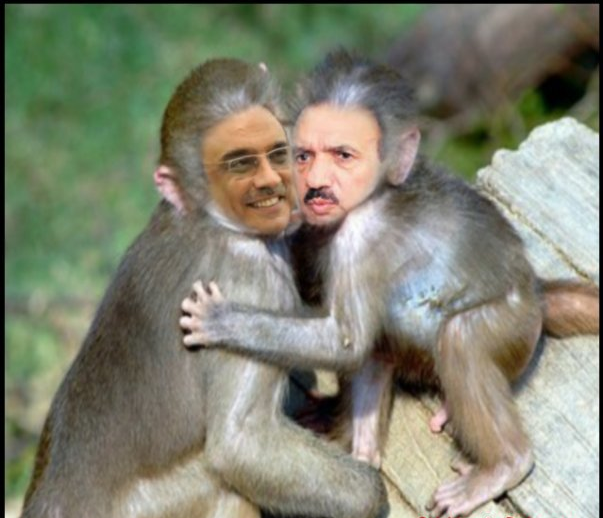These transit providers long-haul and middle-mile networks, as well as the submarine cables, are all examples of backhaul how last-mile traffic gets back to the internet itself. The report concerns itself mainly with submarine cables, though. Many developing areas need more pipes connecting them to other parts of the world. This is both an economic issue (more competition between pipe owners lowers prices) as well as a resiliency issue (more pipes ensure that cable cuts will not shut down the communications network ). Not only do these areas need more submarine cables, but the ownership structure is changing, with big internet companies like Google and Facebook investing in backhaul at the submarine cable level as well as long haul fiber across countries. The OECD report lays out a detailed history of how liberalization and increased competition on the submarine cable side can lower prices and boost demand for internet-based services. In fact, the biggest takeaway from the OECD report which should resonate with all internet stakeholders, from the ISPs to the content guys is that the more open the system is in terms of access and peering, the more demand there is for these networks. That means ISPs that are trying to block content from entering their networks or force transit providers to pay for peering are doing their part to take more of the overall internet pie, but doing nothing to enlarge it. Meanwhile, efforts to put more IXPs in place, as Google has done in Kenya, help promote cheaper broadband and demand for more broadband. Thats also the rationale behind the open internet exchange effort in the U.S.
For the original version visit http://money.cnn.com/news/newsfeeds/gigaom/articles/2014_02_18_delving_into_the_series_of_tubes_how_internet_backhaul_works_and_why_we_need_more.html
Tuesday, February 18, 2014
Delving Into The Series Of Tubes: How Internet Backhaul Works And Why We Need More
Monday, February 17, 2014
how To Be Funny

Funny people strive to be ever funnier. It is a lifelong apprenticeship that few have the resolve to complete.
7. What is, and what is not funny, fluctuates with the years, and is generally accepted as being a subjective test.
Quick-witted 'one-liners' are still in fashion, whereas jokes are not. The "These three men went into a pub…" type stories are currently out of vogue and will create a chorus of cringes, as many would-be comedians have found, unfortunately, too late to save their delicate feelings.
8. Producing funny material takes practise and is primarily a personal preference thereby creating the uniqueness I described earlier. Here are a few suggestions as to how you can go about creating your own unique repertoire.
I work on a simplistic definition of the psychology of humour as being 'the study of the human mind and prediction of behaviour'.
To make a situation humorous the audience must first predict some outcome and then be humoured with a punch line that nudges them off the expected route.
The next time you watch or listen to a favourite comedian be much more analytical about what it is they are saying and try to work out why it is so funny. Let's take a favourite comedian of mine, Woody Allen. Here is a short extract from one of his routines and I would like you to analyse the construction of his story:
"When I was little boy, I wanted a dog desperately, and we had no money. I was a tiny kid, and my parents couldn't get me a dog, 'cause we just didn't have the money, so they got me, instead of a dog - they told me it was a dog - they got me an ant. And I didn't know any better, y'know, I thought it was a dog, I was a dumb kid. Called it 'Spot'. I trained it, y'know. Coming home late one night, Sheldon Finklestein tried to bully me. Spot was with me. And I said "Kill!", and Sheldon stepped on my dog."
Think about some of the tips I have already provided. Take the full stops is Woody's story as being the pauses I described. Does he build empathy by describing a situation that was similar to a problem you may once have had?
Is he making fun of his own problems?
Does he appear to be laughing at himself?
Is he a philosophical spectator of his own life in relation to those around him?
What relationship is he to the other characters in the story?
True comedy is the practically enacted theory of the absurdities so often found in human relationships and is usually related to a 'twist' in the story. This is what 'funny' is.
9. The 'twist' takes the story away from the norm (the predicted path), and makes it humorous. Woody's dog becomes an ant. As the story unfolds Woody creates a movie in your mind. You are there with him as Finklestein tries to bully him and Spot is instructed to Kill!
Funny people have the ability to have 'fun' with literal meanings. It is said they see the funny side of everything. I agree they do, but only when they set the mind to the task. Comedians are performers. Meet them whilst doing the shopping with their spouse and kids and you will find they appear and sound no different to anyone else.
Subscribe to:
Posts (Atom)